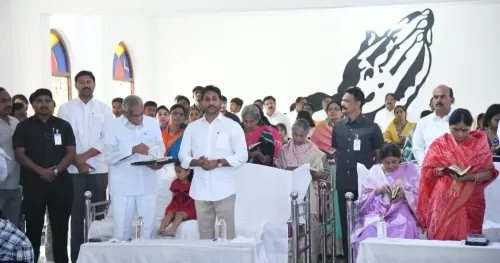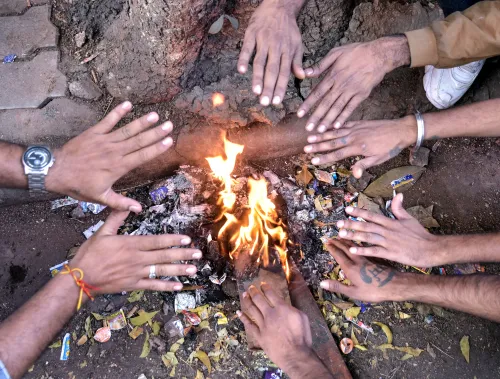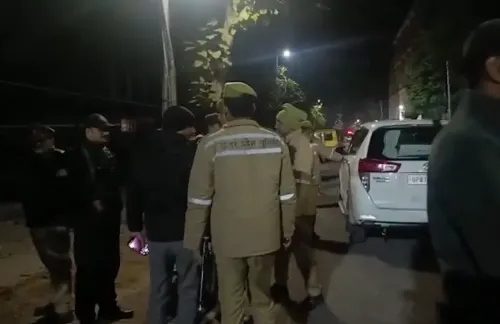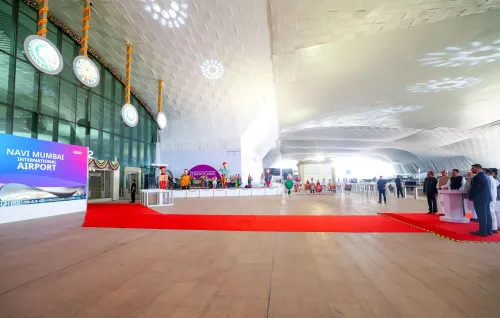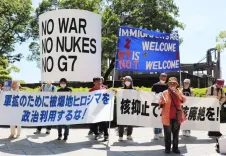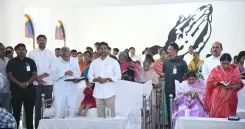No Danger to Constitution, as Long as Moon and Sun Exist: CM Fadnavis
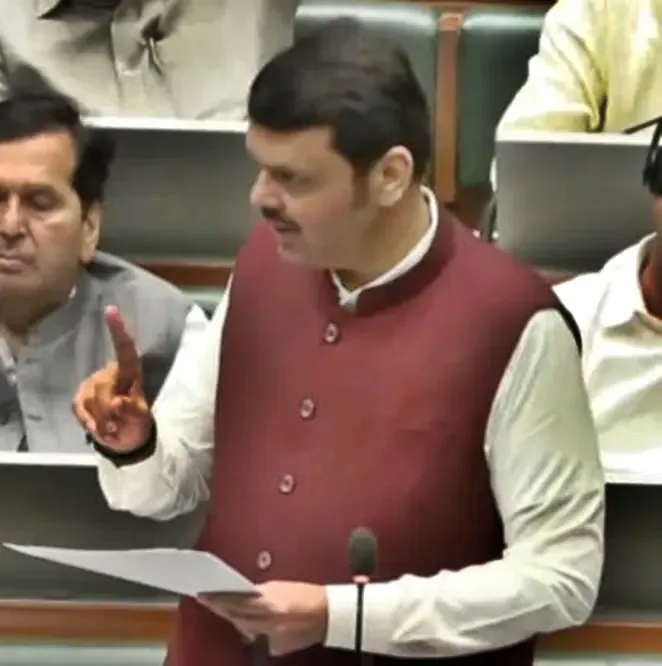
Synopsis
Key Takeaways
- Constitution's Integrity: It cannot be changed as long as celestial bodies exist.
- Historical Context: Dr. Ambedkar's contributions are foundational.
- Emergency Reflection: Past abuses of power are a warning for the future.
- Opposition Critique: A call to constructively engage with national institutions.
- Recent Amendments: Highlight of significant constitutional changes made by current government.
Mumbai, March 26 (NationPress) Maharashtra Chief Minister Devendra Fadnavis stated on Wednesday that as long as there is a moon and a sun, no one will be able to alter the Constitution of India.
He emphasized that there is no threat to the Constitution, asserting that it has withstood numerous challenges and has matured over time. It is untouchable.
In his response to a two-day discussion in the state Assembly regarding ‘The glorious journey of the Indian Constitution’, the chief minister criticized the opposition for undermining the nation's institutions due to their inability to gain power. He urged the opposition to craft a new narrative for the upcoming elections, as their previous agenda regarding changes to the Constitution during the Lok Sabha elections is unlikely to be effective in the future.
Fadnavis recalled the historical context of the Constitution’s creation and the pivotal role of Dr. Babasaheb Ambedkar. "As long as there is a moon and a sun, no one will be able to change the Constitution of India. Hence, there is no threat to the Constitution,” he asserted.
Reflecting on his father's imprisonment during the Emergency, he shared, “During the Emergency, my father and aunt spent two years in prison. Over one lakh individuals from opposition parties faced similar fates.” He remarked that during this period, the government had suspended citizens' fundamental rights and curtailed freedom of expression.
“The situation was such that the country seemed to be governed not by laws but by arbitrary orders. By suspending the Constitution drafted by Dr. B.R. Ambedkar, the then government aimed to silence the entire opposition,” he noted. “During the Emergency, the government led by Indira Gandhi introduced the terms socialist and secular, which do not appear in the original Constitution. Dr. Ambedkar recognized that secularism is the essence of our nation,” added the chief minister.
He mentioned that the Centre had revoked powers granted to the states through the 42nd amendment, allowing central agencies and police to intervene in state matters. However, he clarified that currently, they cannot do so without the state government’s approval. He further observed that post the 42nd amendment, the President became a mere figurehead, obliged to sign government decisions without scrutiny.
Addressing the ongoing criticism against national institutions, the chief minister stated, "You aim to tarnish all the institutions of the country, casting aspersions on them, and leading these institutions towards chaos. We cannot seek power while simultaneously disparaging our national institutions. Discrediting these institutions reflects a lack of faith in the Constitution. This Constitution has established these institutions, which have become resilient enough to withstand any threat. Thus, nothing detrimental can befall the institutions founded by this Constitution."
The chief minister highlighted that during the Congress-led administration, the Constitution was amended to counter the Supreme Court ruling in the Shah Bano case in 1985. In contrast, the Prime Minister Narendra Modi-led government introduced amendments to prohibit the practice of instant triple talaq and to revoke Article 370 in Jammu and Kashmir.
Earlier, NCP SP legislator Jayant Patil, Congress legislator Nana Patole, among others, took part in the debate.


